Vivotek NDAA Compliant
The National Defense Authorization Act (NDAA) is a United States federal law that, among other things, includes provisions related to the procurement of certain products, including security cameras, by the U.S. government. These provisions address concerns related to the security and integrity of critical infrastructure and national security interests.
NDAA compliance, in the context of security cameras, means that a manufacturer has taken steps to ensure that their products meet the specific requirements outlined in the NDAA. Vivotek, like other security camera manufacturers, may produce NDAA-compliant cameras and related equipment.
Key features of Vivotek NDAA Compliant
- No Banned Components: NDAA compliance typically means that the camera and its components do not contain parts or materials from countries or entities banned or restricted by the U.S. government due to national security concerns.
- Secure Supply Chain: NDAA-compliant manufacturers often have established secure supply chains to ensure that their products are not compromised during production, transportation, or distribution. This includes measures to prevent counterfeiting and tampering.
- Secure Firmware and Software: Cameras must have secure firmware and software to protect against unauthorized access and exploitation. Regular updates and patches may be provided to address security vulnerabilities.
- Encryption: NDAA-compliant cameras often use strong encryption protocols to protect the integrity and confidentiality of the data they capture and transmit.
- No Backdoors: The cameras should not contain any hidden backdoors or vulnerabilities that could be exploited by malicious actors to compromise security.
- Compliance Documentation: Manufacturers may provide documentation and certifications to demonstrate NDAA compliance. This may include information on the origin of components and the security measures in place during production.
- Testing and Validation: NDAA-compliant cameras may undergo third-party testing and validation to ensure that they meet the NDAA requirements and adhere to specific security standards.
-

Vivotek FD9187-HT-V3(2.7-13.5 mm) 5MP IR Indoor/Outdoor Dome IP Security Camera
Brand: Vivotek
Part Number: FD9187-HT-V3(2.7-13.5 mm)$993.00$683.35- Compression : H.264, H.265, MJPEG,
- Max. FPS and Resolution : 30fps at 5MP
- Lens Type : Motorized (Automatic Zoom) Lens Varifocal Lens
- Lens Size : 2.7~13.5mm Lens
- Sensor Type : CMOS
- Max. Storage Capacity : 1 TB Storage Capacity
- Protection Code : IP54
- Color : White
- Environmental : Indoor Outdoor
- Aperture : F1.7
- Audio Support : Built-in Microphone External Microphone
$993.00$683.35 -

Vivotek FD9365-EHTV-V2 2MP IR Extreme Weather Outdoor Dome IP Security Camera
Brand: Vivotek
Part Number: FD9365-EHTV-V2$1,200.00$841.25- Compression : H.264, H.265, MJPEG,
- Field of View (Horizontal) : 120°Field of View 46°Field of View
- Max. FPS and Resolution : 60fps at 1920 x 1080
- Lens Type : Motorized (Automatic Zoom) Lens Varifocal (Manual Zoom) Lens
- Lens Size : 4~9mm Lens
- Sensor Type : CMOS
- Sensor Size : 1/2" Sensor
- Protection Code : IP66 IP67 IP6K9K IK10 Plus NEMA 4X
- Color : White
- Environmental : Outdoor
- Aperture : F1.3 F2.2
- Audio Support : Built-in Microphone
- IR Corrected : IR Corrected
$1,200.00$841.25 -
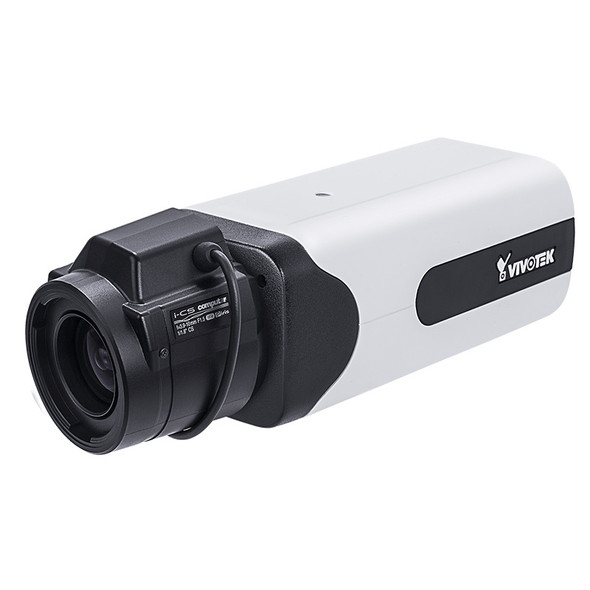
Vivotek IP9165-HT-v2 2MP Indoor Box IP Security Camera with H.265, 3.9~10mm, SNV II, WDR Pro II, i-CS
Brand: Vivotek
Part Number: IP9165-HT-V2$1,250.00$805.47- Compression : H.265, H.264, MJPEG,
- Field of View (Horizontal) : 109.7°Field of View 42.7°Field of View
- Lens Type : Varifocal (Manual Zoom) Lens
- Lens Size : 3.9~10mm Lens
- Sensor Type : CMOS
- Sensor Size : 1/2" Sensor
- Video Output : 1x BNC
- Environmental : Indoor
- Aperture : F1.5 F2.7
- Audio Support : External Microphone
$1,250.00$805.47 -

Vivotek FE931-EHV-1Y Vortex 12MP Fisheye 1.22 mm Lens Outdoor IP Security Camera, 1-Year Vortex Standard Cloud License Included
Brand: Vivotek
Part Number: FE931-EHV-1Y$1,746.00$1,173.89- Compression : H.264,
- Field of View (Horizontal) : 180°Field of View
- Lens Size : 1.22mm Lens
- Sensor Type : CMOS
- Sensor Size : 1/2.3" Sensor
- Protection Code : IP66 IK10
- Color : White
- Environmental : Outdoor
- Aperture : F2.0
$1,746.00$1,173.89 -
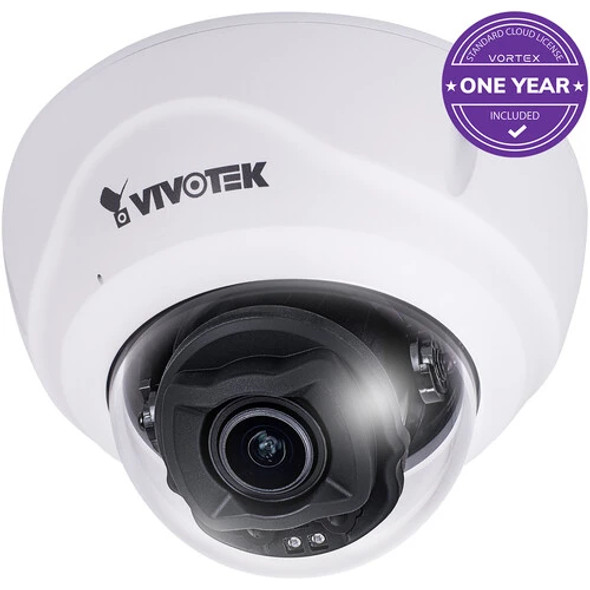
Vivotek FD837-HTV-1Y Vortex 5MP Dome 2.7~13.5 mm Lens Outdoor IP Security Camera with 1-Year Vortex Standard Cloud License
Brand: Vivotek
Part Number: FD837-HTV-1Y$1,126.00$849.99- Compression : H.264,
- Field of View (Horizontal) : 97°Field of View 27°Field of View
- Lens Type : Motorized (Automatic Zoom) Lens
- Lens Size : 2.7~13.5mm Lens
- Sensor Type : CMOS
- Sensor Size : 1/2.8" Sensor
- Protection Code : IK10 IP67
- Color : White
- Environmental : Outdoor
- Aperture : F1.4 F2.8
$1,126.00$849.99 -
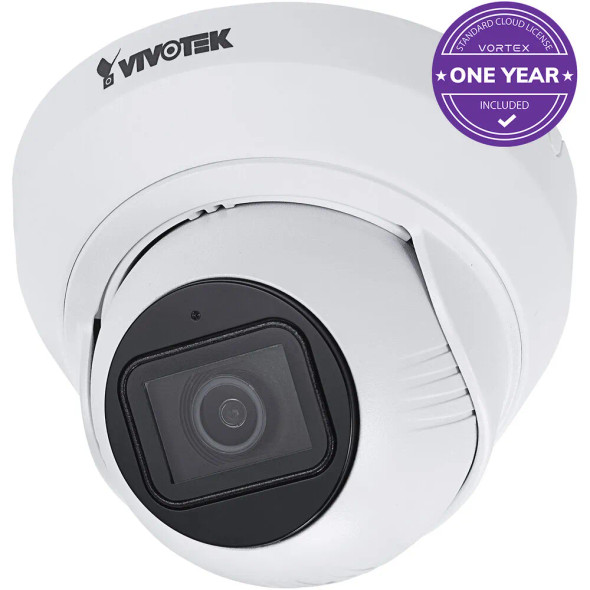
Vivotek IT839-H-1Y Vortex 5MP IR Turret 2.8mm Fixed Lens Outdoor IP Security Camera, 1-Year Vortex Standard Cloud License Included
Brand: Vivotek
Part Number: IT839-H-1Y$726.00$529.00- Compression : H.264,
- Field of View (Horizontal) : 103°Field of View
- Lens Type : Fixed Lens
- Lens Size : 2.8mm Lens
- Sensor Type : CMOS
- Sensor Size : 1/2.7" Sensor
- Protection Code : IP66 IK10
- Color : White
- Environmental : Outdoor
- Aperture : F2.0
$726.00$529.00 -

Vivotek IB839-EHT-1Y 5MP Bullet 2.9~10 mm Lens Outdoor IP Camera, 1-Year Vortex Standard Cloud License Included
Brand: Vivotek
Part Number: IB839-EHT-1Y$797.00$561.40- Compression : H.264,
- Field of View (Horizontal) : 95°Field of View 41°Field of View
- Lens Type : Fixed Lens
- Lens Size : 2.9~10 mm Lens
- Sensor Type : CMOS
- Sensor Size : 1/2.7" Sensor
- Protection Code : IK10 IP66
- Color : White
- Environmental : Outdoor
- Aperture : F1.8 F2.74
$797.00$561.40 -
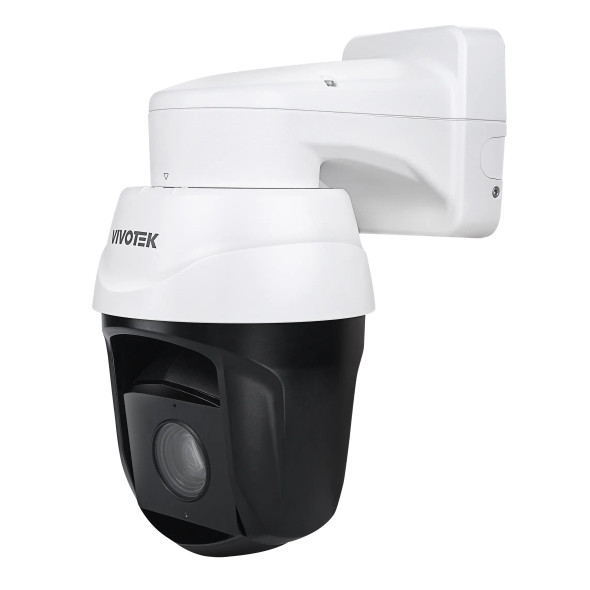
Vivotek SD9394-EHL 8MP Night Vision H.265 Outdoor PTZ IP Security Camera with 32x Optical Zoom
Brand: Vivotek
Part Number: SD9394-EHL$4,606.00$2,994.09- Sensor Type : CMOS
- Protection Code : IP66 IK10
- Aperture : F4.95
- Input Voltage : 24VAC 48VDC
$4,606.00$2,994.09 -
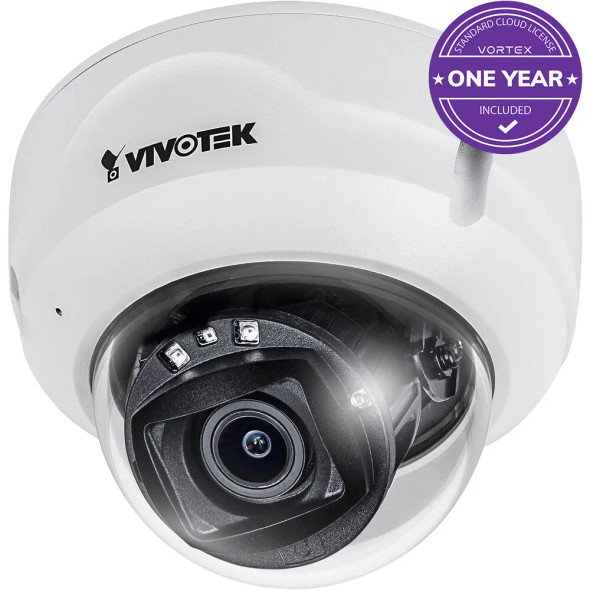
Vivotek FD839-EHTV-1Y 5MP IR Dome 2.8~10 mm Lens Outdoor IP Security Camera, 1-Year Vortex Standard Cloud License Included
Brand: Vivotek
Part Number: FD839-EHTV-1Y$797.00$599.99- Compression : H.264,
- Field of View (Horizontal) : 95°Field of View 41°Field of View
- Lens Type : Motorized (Automatic Zoom) Lens
- Lens Size : 2.8~10mm Lens
- Sensor Type : CMOS
- Sensor Size : 1/2.7" Sensor
- Protection Code : IP66 IK10
- Color : White
- Environmental : Outdoor
- Aperture : F1.8 F2.74
$797.00$599.99 -
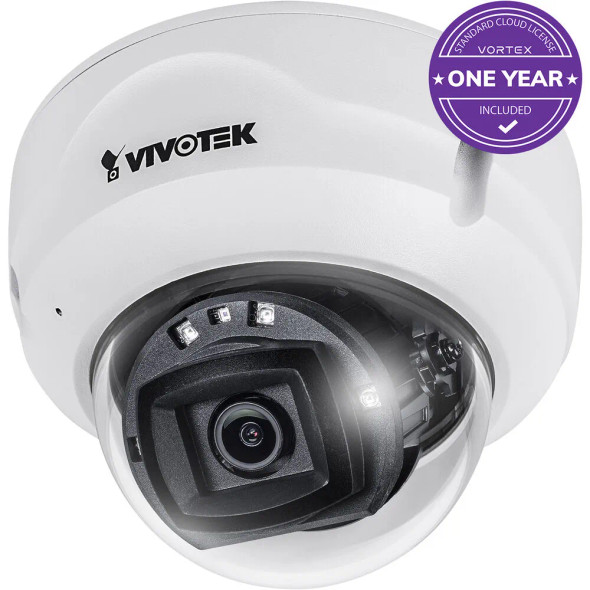
Vivotek FD839-EHV-1Y 5MP IR Dome 2.8mm Fixed Lens Outdoor IP Security Camera, 1-Year Vortex Standard Cloud License Included
Brand: Vivotek
Part Number: FD839-EHV-1Y$726.00$529.00- Compression : H.264,
- Field of View (Horizontal) : 103°Field of View
- Lens Type : Fixed Lens
- Lens Size : 2.8mm Lens
- Sensor Type : CMOS
- Sensor Size : 1/2.7" Sensor
- Protection Code : IP66 IK10
- Color : White
- Environmental : Outdoor
- Aperture : F2.0
$726.00$529.00 -
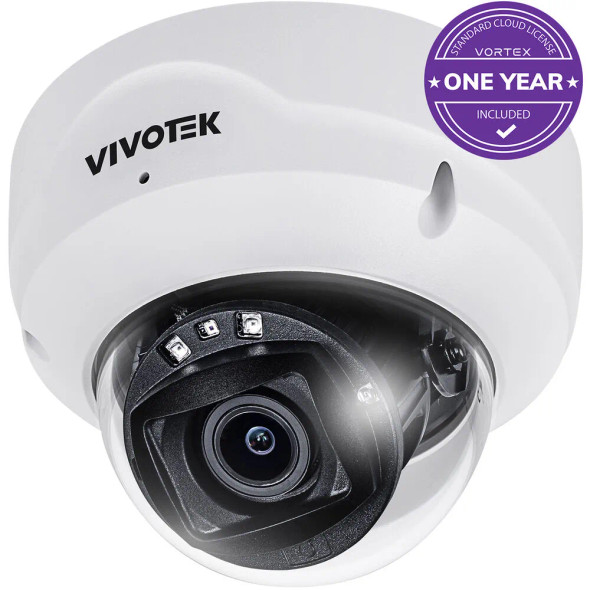
Vivotek FD819-HT-1Y 5MP IR Dome 2.8~10 mm Lens Indoor IP Security Camera with 1-Year Vortex Standard Cloud License
Brand: Vivotek
Part Number: FD819-HT-1Y$746.00$525.51- Compression : H.264,
- Field of View (Horizontal) : 95°Field of View 41°Field of View
- Lens Type : Motorized (Automatic Zoom) Lens
- Lens Size : 2.8~10mm Lens
- Sensor Type : CMOS
- Sensor Size : 1/2.7" Sensor
- Color : White
- Environmental : Indoor
- Aperture : F1.8 F2.74
$746.00$525.51 -

Vivotek FE912-H-1Y Vortex 12MP Fisheye 1.22 mm Lens Recessed Mount IP Security Camera, 1-Year Vortex Standard Cloud License Included
Brand: Vivotek
Part Number: FE912-H-1Y$1,506.00$1,036.29- Compression : H.264,
- Field of View (Horizontal) : 180°Field of View
- Lens Size : 1.22mm Lens
- Sensor Type : CMOS
- Sensor Size : 1/2.3" Sensor
- Color : White
- Mount Type : Recessed Mount
- Environmental : Indoor
- Aperture : F2.0
$1,506.00$1,036.29 -

Vivotek FD9383-HTV 5MP Fixed Dome IP Security Camera with 2.8-12mm Motorized Lens
Brand: Vivotek
Part Number: FD9383-HTV$564.00$397.34- Compression : H.264, H.265, MJPEG,
- Lens Type : Motorized (Automatic Zoom) Lens
- Lens Size : 2.8~12mm Lens
- Sensor Type : CMOS
- Sensor Size : 1/2.8" Sensor
- Protection Code : IK10 IP66
- Color : White
- Environmental : Outdoor
- Audio Support : Built-in Microphone
$564.00$397.34 -

Vivotek CD9381-HNTV 5MP Night Vision Corner IP Security Camera with 2.8x Optical Zoom Lens
Brand: Vivotek
Part Number: CD9381-HNTV$1,435.00$987.48- Compression : H.265, H.264, MJPEG,
- Field of View (Horizontal) : 41°Field of View 95°Field of View
- Max. FPS and Resolution : 30fps at 2560 x 1920 60fps at 1080P
- Lens Type : Motorized (Automatic Zoom) Lens
- Lens Size : 2.8~8mm Lens
- Sensor Type : CMOS
- Sensor Size : 1/2.7" Sensor
- Protection Code : IP67 IP6K9K IK10 Plus
- Color : White
- Environmental : Indoor Outdoor
- Aperture : F1.8 F2.78
- Audio Support : Built-in Microphone
$1,435.00$987.48 -

Vivotek CD9381-HNVF2 5MP Night Vision Corner IP Security Camera with Built-in Microphone
Brand: Vivotek
Part Number: CD9381-HNVF2$1,213.00$834.79- Compression : H.265, H.264, MJPEG,
- Field of View (Horizontal) : 124°Field of View
- Max. FPS and Resolution : 30fps at 2560 x 1920 60fps at 1080P
- Lens Type : Fixed Lens
- Lens Size : 2.4mm Lens
- Sensor Type : CMOS
- Sensor Size : 1/2.7" Sensor
- Protection Code : IP67 IP6K9K IK10 Plus
- Color : White
- Environmental : Indoor Outdoor
- Aperture : F2.4
- Audio Support : Built-in Microphone
$1,213.00$834.79 -

Vivotek MA9322-EHTVL 4x 5MP Night Vision Outdoor Multi-sensor IP Security Camera with Motorized Lens
Brand: Vivotek
Part Number: MA9322-EHTVL$2,700.00$1,645.00- Compression : H.265, H.264, MJPEG,
- Field of View (Horizontal) : 88.6°Field of View 40.1°Field of View
- Max. FPS and Resolution : 30fps at 2560 x 1440 12fps at 2688 x 1920
- Lens Type : Motorized (Automatic Zoom) Lens
- Lens Size : 3.7~7.7mm Lens
- Sensor Type : CMOS
- Sensor Size : 1/2.7" Sensor
- Protection Code : IP66 IK10 NEMA 4X
- Color : White
- Environmental : Outdoor
- Aperture : F1.9 F2.9
- Audio Support : Built-in Microphone External Microphone
$2,700.00$1,645.00 -

Vivotek FE9391-EHV-v2 12MP 4K Outdoor Fisheye IP Security Camera, 360 degree surround view
Brand: Vivotek
Part Number: FE9391-EHV-v2$1,060.00$736.41- Compression : H.264, MJPEG, H.265,
- Field of View (Horizontal) : 180°Field of View
- Max. FPS and Resolution : 30fps at 2944 x 2944
- Lens Type : Fixed Lens
- Lens Size : 1.22mm Lens
- Sensor Type : CMOS
- Sensor Size : 1/2.3" Sensor
- Protection Code : IP66 IK10 NEMA 4X
- Color : White
- Environmental : Outdoor
- Aperture : F2.0
- Audio Support : Built-in Microphone
$1,060.00$736.41 -

Vivotek SC9133-RTL Indoor Stereo IP Security Camera, WDR Pro, AI People Counting
Brand: Vivotek
Part Number: SC9133-RTL$1,986.00$1,335.29- Compression : H.264, H.265, MJPEG,
- Lens Type : Fixed Lens
- Protection Code : IP66 IK10
- Color : White
- Material : Metal
- Environmental : Indoor
- Aperture : F2.7
- Audio Support : Built-in Microphone
$1,986.00$1,335.29 -
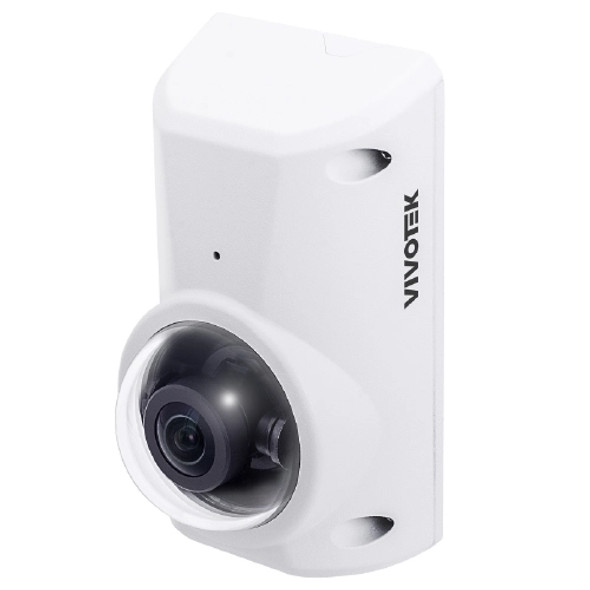
Vivotek CC9390-HV 8MP Outdoor Compact Panaromic IP Security Camera
Brand: Vivotek
Part Number: CC9390-HV$800.00$563.96- Compression : H.265, H.264, MJPEG,
- Lens Type : Fixed Lens
- Lens Size : 2.53mm Lens
- Sensor Type : CMOS
- Sensor Size : 1/1.8" Sensor
- Protection Code : IK10 IP66
- Aperture : F2.4
$800.00$563.96 -
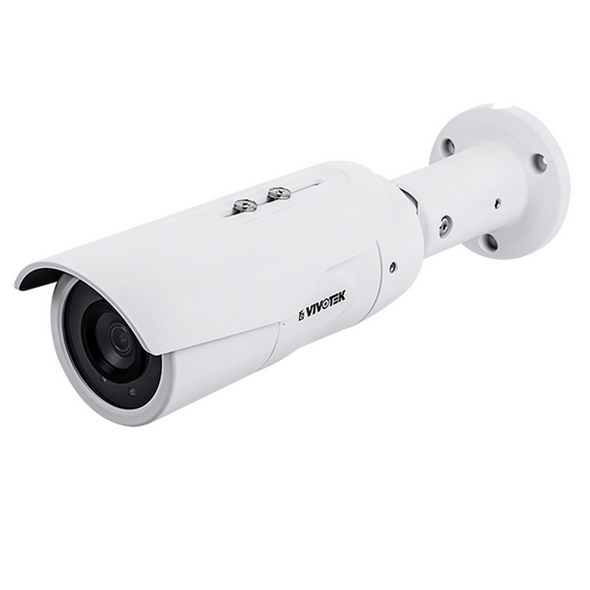
Vivotek IB839-EH-1Y 5MP Bullet 3.6 mm Fixed Lens Outdoor IP Camera, 1-Year Vortex Standard Cloud License Included
Brand: Vivotek
Part Number: IB839-EH-1Y$726.00$511.41- Compression : H.264,
- Field of View (Horizontal) : 76°Field of View
- Lens Type : Fixed Lens
- Lens Size : 3.6mm Lens
- Sensor Type : CMOS
- Sensor Size : 1/2.7" Sensor
- Protection Code : IK10 IP66
- Color : White
- Environmental : Outdoor
- Aperture : F2.0
$726.00$511.41
